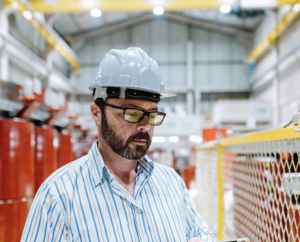Your Guide to BBQ Fire Safety
July has seen a heat wave sweep the UK, producing some of the hottest temperatures on record for seven years and granting the people of Britain with some long-overdue, well-deserved summer weather! The clear skies and sweltering temperatures meant everyone invited round friends and families, stocked up on burgers and sausages and ran outside for a barbecue.
However, the surge in barbecuing has led to local fire and rescue services warning people of the dangers surrounding them and encouraging everyone to take care when having a BBQ this summer. So to ensure your BBQ goes without a hitch, here’s our guide to comprehensive BBQ safety…
General Fire Safety Tips
For all barbecues, no matter what type and for how many people they are catering, there are simple precautions you can undertake to keep everyone present – and your home – safe from the threat of fire:
- Never use a faulty, defective BBQ – make sure you only use one in good working order.
- Set your BBQ up on a flat surface away from any trees, fences, sheds or shrubs.
- Keep children and pets far away from the BBQ area.
- Never leave the BBQ unattended.
- Keep a bucket of water or sand nearby in case of emergencies and, if you have one, an appropriate fire extinguisher.
- Make sure the BBQ has completely cooled down before attempting to move it and never throw hot embers into the dustbin.
Depending on what type of barbecue you are using – charcoal, gas or disposable – there will be additional fire safety precautions you should consider…
Charcoal BBQ
- Experts recommend using enough charcoal to cover the base of your BBQ with a depth of 2 inches – and no more.
- Never use petrol or paraffin to accelerate the BBQ. Instead use fire lighters and a very small amount of starter fuel.
Gas BBQ
- Before attempting to change a gas cylinder, always make sure the tap is turned off.
- If possible, always change the cylinder outdoors or in a well-ventilated area.
- If you think the cylinder or pipe may be leaking, brush it with soapy water and then watch closely for the appearance of any bubbles. You can try to tighten it to fix it, but be careful not to over tighten it.
- After the BBQ, switch off the gas cylinder before turning off at the main control to make sure any remaining gas in the pipe has been used.
Disposable BBQ
- Don’t place your disposable BBQ directly onto grass or benches – instead find a flat surface on bricks, concrete or a patio.
- Once you’re finished with your disposable BBQ, make sure it has cooled down completely before putting in the bin. It is recommended you leave it for several hours to cool and then pour water over it to ensure it’s definitely out.
Extinguishing a Fire
In the event of a fire, it is crucial you have equipment nearby to help put it out. As barbecues take place outside, there will be no fire alarm to warn you of its presence. So you must attend it at all times and act quickly – and safely – if the fire does get out of control.
As suggested previously, it is important to keep a bucket of water or sand nearby and it is also highly recommended that you keep an appropriate fire extinguisher near the BBQ. The safest, most effective type of fire extinguisher for a BBQ is a dry powder fire extinguisher. Dry powder extinguishers can be used on gas, oils and flammable liquids and they smother the fire, removing its oxygen content and stopping it from spreading.
Additionally, foam fire extinguishers can provide protection against BBQ fires and fire blankets can help to smother a blaze.
For more information on barbecue fire safety, get in touch with the professionals at City Fire. We specialise in the supply and installation of a host of fire safety equipment – including fire extinguishers and fire blankets. Simply give us a call today!


